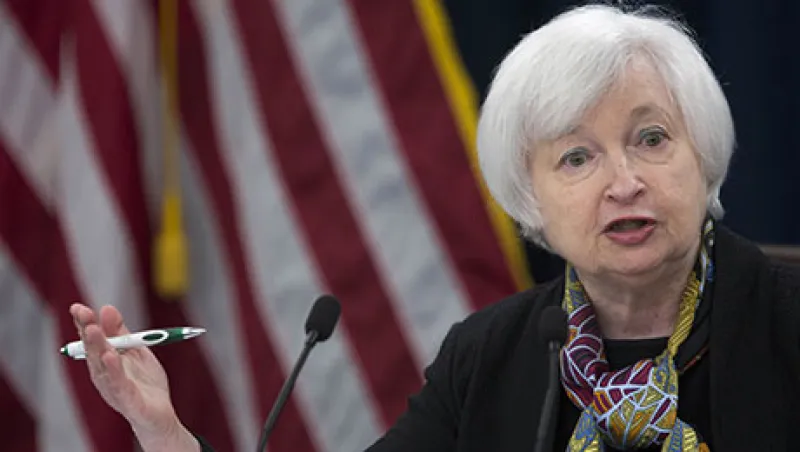Yesterday’s announcement by the Federal Open Market Committee was a tonic for financial markets as Federal Reserve Chair Janet Yellen provided assurance that, despite improving labor conditions, the central bank is in no hurry to raise rates to historic norms. With futures markets now pricing in only two increases for the benchmark fed-funds rate in 2016, investors reacted positively, sending equities, bonds and commodities higher as the dollar slipped to a multi-month lows against currencies of primary trading partners. While policymakers in the U.S. decided to refrain from action, The Norwegian central bank announced a 25 basis-point cut to its benchmark on Thursday with comments that did not rule out negative rates, as the Scandinavian nation grapples with oil prices that, even after rallying over 25 percent off lows for the year, threaten recession.
Peabody considers bankruptcy protection. On Wednesday, St. Louis-headquartered coal producer Peabody Energy Corp. announced it was considering seeking court protection from creditors as it struggles with more than $6 billion in debt and collapsing prices for its core products. Sharply declining revenues have already driven a number of other major coal miners into bankruptcy. Despite globally diverse operations, Peabody filed with the Securities and Exchange Commission saying the firm’s ability to continue operations is in doubt.
Dilma gambles on Lula and Loses. Brazilian President Dilma Rousseff faces a rapidly expanding crisis after a federal judge released wiretapped conversations between her and her predecessor as Brazil’s president, Luiz Inacio Lula da Silva, that sparked large street protests overnight. Rousseff announced on Wednesday that Lula would join her cabinet as chief of staff, a move that insulates him from prosecution in the ongoing Petrobras scandal. In a note issued yesterday, Moody’s Investor Services, which cut the credit rating on Brazilian debt to junk status in February, raised concerns that Lula’s appointment may be a signal that the Rousseff administration will abandon austerity measures in an attempt to curry favor with poorer voters.
Japanese trade data sends mixed signals. February trade data released on Thursday by the Japan’s Ministry of Finance included headline exports which declined by 4 percent year-over-year versus consensus forecasts for a 3 percent drop and imports which, at a decline of 14.2 percent versus the same month last year beat expectations. Critically, while exports to China increased in both a volume and value for the month, U.S.-bound shipments stagnated. The results suggest that the impact of a weaker yen on external demand has dissipated after sparking a boost last year.
Shell and Aramco wind down joint venture. On Thursday Royal Dutch Shell Plc and Saudi Arabian Oil Co., better known as Aramco, announced that they would divide the assets of their US based partnership Motiva. Under the terms of the breakup Aramco will retain the Motiva name, the Shell retail brand for fuel sales in some US regions and the Port Arthur refinery which is currently the largest petroleum processing facility in the nation. Shell will leave the venture with a several smaller refineries, fuel terminals and other infrastructure. The move to streamline corporate balance sheets comes as Aramco considers a public offering and Shell prepares to digest BG Group which it is acquiring in a merger initially valued at more than $70 billion.
NYC icon goes on the block. The legendary Plaza Hotel poised at the intersection of Fifth Avenue and Central Park South will reportedly be auctioned next month after the hotel’s mortgage holders scheduled a foreclosure against Sahara India Pariwar, an Indian company controlled by disgraced financier Subrata Roy who is currently imprisoned for fraud. The hotel, a favorite of celebrities ranging from the Beatles to Hemmingway -not to mention the home of fictional Eloise, was the site of the “Plaza Accord” between the US, France, Germany, Japan and the UK in 1985 which devalued the US currency.
Portfolio Perspective: A Less Hawkish Fed is Good for Markets
Surprisingly, with ongoing strong U.S. employment growth and some inflation measures moving up towards the target, the Fed reduced its expected rate-hike path substantially, with the median suggesting two 25 basis-point hikes this year, and four in 2017.
What drove the drop? Likely the perception of vulnerability in the financial markets and the tepid growth environment outside the United States. The Fed has learned from their September experience that if it looks like they’re setting up for a string of hikes, financial conditions will tighten significantly — that is, stock prices will fall, while U.S. Treasury yields, credit spreads, and the dollar will rise — all things that hurt the economy. In other words, the Fed seems to have realized that the signaled pace of hikes, as modest as the Fed may have thought it was, nonetheless was above the speed limit of what the current global economic backdrop could handle.
Yesterday’s market reaction to the Fed’s downgraded rate path — higher stock prices, lower dollar, lower rates and tighter credit spreads — all suggest that the market was not expecting this climbdown from the Fed. Going forward, we see the Treasury curve as broadly braced for the Fed’s likely rate path, and spreads on non-governments representing good value. Furthermore, the uncertainty posed by the dynamic policy backdrop should continue to offer good opportunities to add value through active management.
Robert Tipp is chief investment strategist and head of global bonds and foreign exchange for Prudential Fixed Income in Newark, New Jersey.






